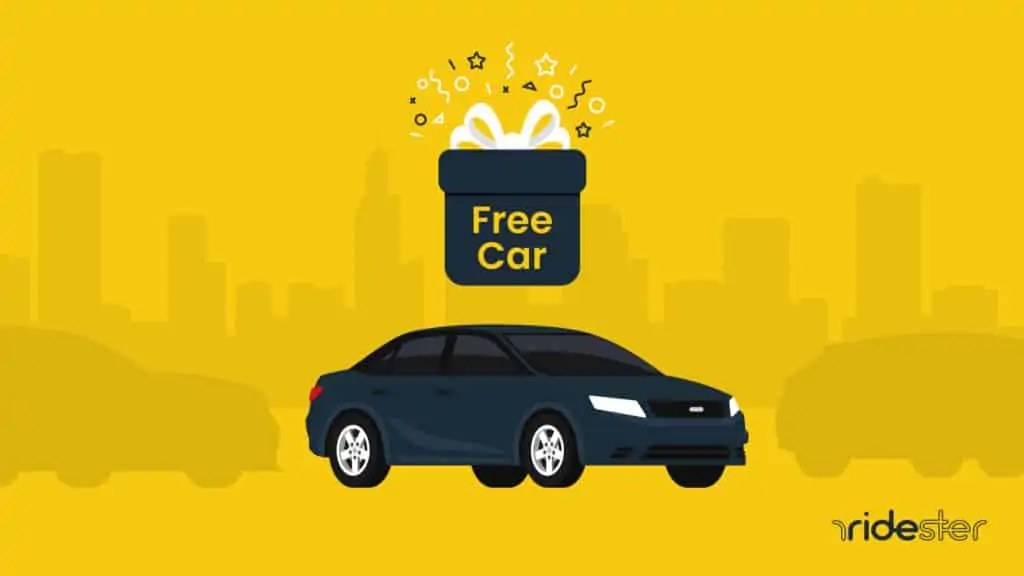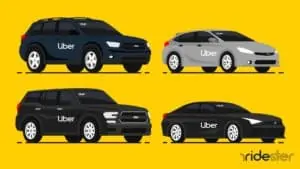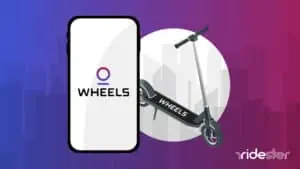Do you need a car but don’t have the money? Believe it or not, it’s possible to get one free of charge.
Charities, nonprofit organizations, and even your personal connections can prove helpful in your quest to get a car.
In most cases, all it’ll take is for you to meet specific criteria. If that sounds interesting, read on to learn how to get a free car.
13 Ways to Get a Free Car in 2024
Here are a handful of ways you can get a car free of charge.
- Good News Garage
- 800-Charity Cars
- Vehicles for Change
- OnlineCarDonation.org
- Cars 4 Heroes
- Working Cars for Working Families
- OnlineCarDonation.com
- National Auto Body Council
- Your Local Church
- Family and Friends
- Your Company
- Your Local Car Dealership
- GoFundMe
| Option | Probability of Success | Ideal Use Scenario |
|---|---|---|
| Good News Garage | Moderate | For residents in Massachusetts or Vermont, especially single moms, job seekers, and domestic violence victims. |
| 800-Charity Cars | Moderate to High | Suitable for struggling families across America who need a vehicle for self-sufficiency. |
| Vehicles for Change | Moderate | Ideal for low-income households in Virginia and Maryland with employment and no current vehicle. |
| OnlineCarDonation.org | Low to Moderate | For marginalized groups nationwide, including military families, disabled individuals, and those in shelters. |
| Cars 4 Heroes | Moderate | Best for U.S. military veterans, active-duty members, first responders, and their families. |
| Working Cars for Families | Moderate | Suitable for low-income families across various states needing reliable transportation. |
| OnlineCarDonation.com | Low to Moderate | For individuals and families in need, nationwide, seeking reliable transportation. |
| National Auto Body Council | Moderate | Ideal for low-income individuals and service organizations in need of transportation. |
| Local Church | Low to Moderate | For active church members in need, particularly single parents and low-income families. |
| Family and Friends | High | A quick and easy option if you have a willing family member or friend with a spare vehicle. |
| Your Company | High | Suitable if your job offers a company car or if you’re considering a job change to a role that includes a car. |
| Local Car Dealership | Low | A potential option during holiday seasons or for CSR initiatives by local dealerships. |
| GoFundMe | Variable | For individuals with compelling stories who can appeal to public generosity, especially in hard times. |
How to Get a Free Car Through Charities and Nonprofit Organizations
1. Good News Garage
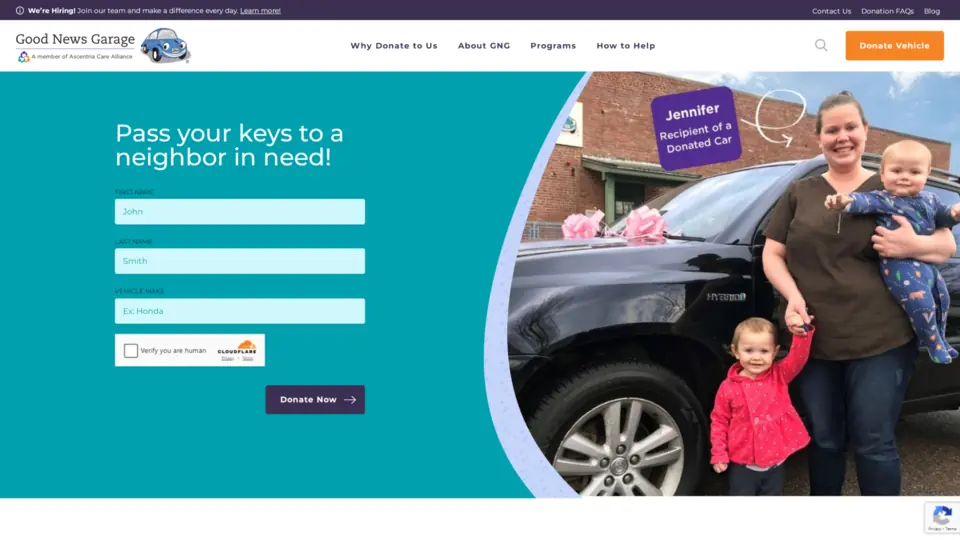
Do you live in Massachusetts or Vermont? You can try to get a free car from Good News Garage. Since 1996, this organization has aimed to provide as many cars as it takes for local families to move their lives forward.
Who They Primarily Help
Good News Garage primarily helps single moms, job seekers, and domestic violence victims. They have provided nearly 200 cars to people who belong to these groups annually.
How It Works
Their Wheels to Work program aims to provide free cars, trucks, and vans to community members. Through it, Good News Garage has awarded over 5,500 donated cars to families in New England.
Unlike other car donation initiatives, you don’t apply for a free car. Instead, the state agency refers you to Good News Garage. By association, it’s your state’s agency that sets the criteria for whether you qualify to receive vehicular assistance.
A good percentage of the cars you can get from this organization will likely be refurbished. However, many of them have good mileage.
2. 800-Charity Cars
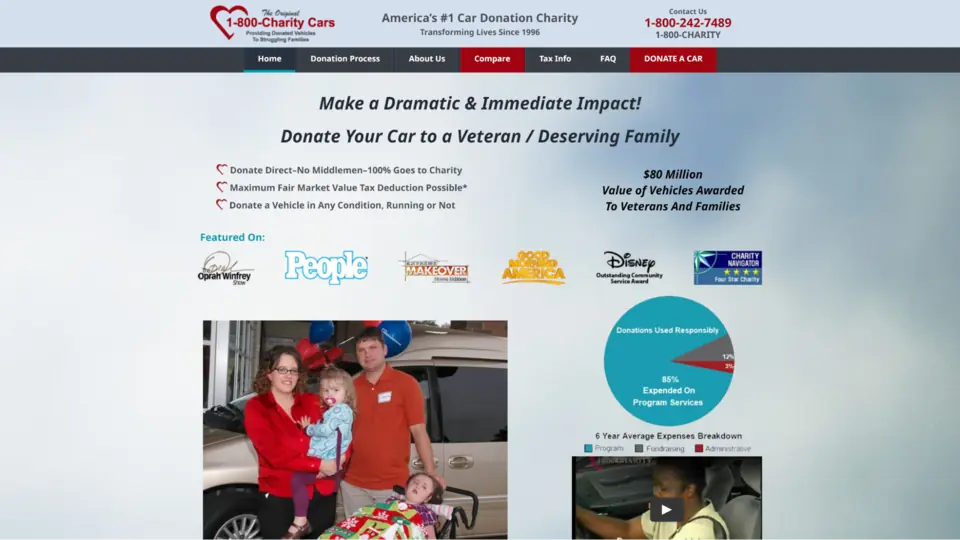
800-Charity Cars is a nonprofit organization that touts itself as a first-of-its-kind charity in America. Their mission is to help families become self-sufficient in the long run.
Who They Primarily Help
Since 1996, 800-Charity Cars has awarded free donated vehicles to struggling families in America. If your family has barely enough to live on, you can apply to get a free car.
How It Works
You can start the application process by visiting their sister website, FreeCharityCars.org. Fill out the Vehicle Request Form on that site, and the organization will contact you if you’re selected. Make sure to provide accurate information when filling out the form, as this organization verifies and authenticates applications.
800-Charity Cars will go to great lengths to contact you if you’re selected. Therefore, ensure that you respond on time. If the organization doesn’t hear from you in 48 hours (after calling and emailing you), it’ll choose another beneficiary to gift the car to.
3. Vehicles for Change
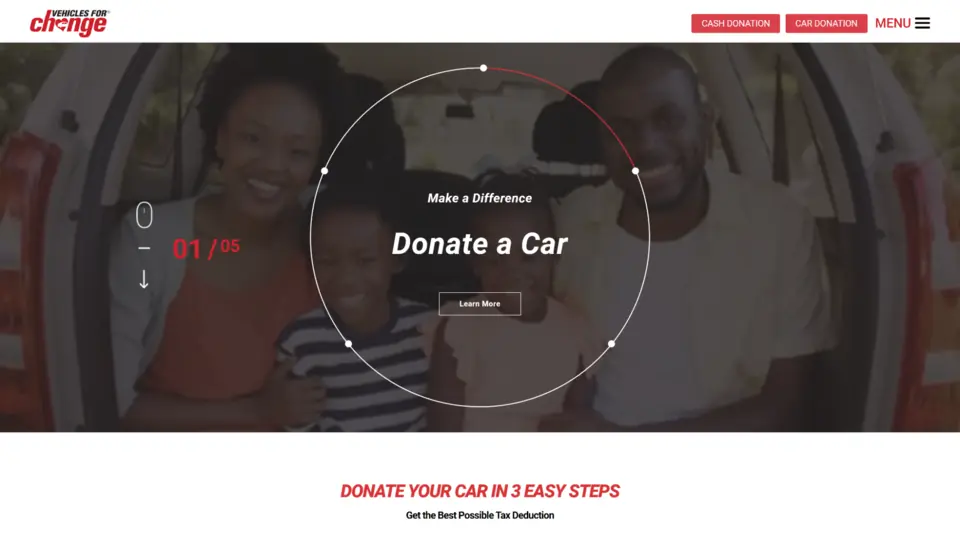
Vehicles for Change has run a car donation program in Virginia and Maryland since 1999. Their mission is to provide the cars needed by struggling families to achieve financial stability.
Who They Primarily Help
The organization primarily focuses on assisting low-income households in the above-mentioned cities.
How It Works
You’ll need to meet several eligibility requirements to qualify for a car donation. Some of these criteria include:
- You need to have a verifiable job offer or work at least 30 hours a week.
- You have to be insurable.
- You can’t have another vehicle at home.
- You have to be drug-free.
It’s worth noting that you can’t directly apply to receive a car from Vehicles for Change. Rather, your state’s or county’s agency would have to submit an application on your behalf. Examples of partner agencies include Light House Center in Anne Arundel County and Dee’s Place in Baltimore City. Visit the Vehicles for Change website for the full list of agencies.
4. OnlineCarDonation.org

OnlineCarDonation.org aims to give marginalized and less fortunate groups a path to car ownership. The site operates nationwide and provides free towing to make the donation process as smooth as possible for its donors.
Who They Primarily Help
This organization donates cars to the following groups:
- People in need
- Military families
- Battered women
- Physically disabled people
- Families in homeless shelters
Thus, it’s best to consider this option only if you belong to a group of people who’ve fallen on hard times.
How It Works
To apply for a vehicle, you’ll need to fill out the form on their website, providing your name, email, address, phone number, and zip code. You’ll also need to describe your vehicle needs and explain how the organization can help your situation. Your driver’s license needs to be valid too.
Note that OnlineCarDonation.org will only respond to your application if you get selected to receive a donated car. That said, kindly refrain from calling them about your application status, as they reserve their telephone lines for car donors only.
OnlineCarDonation.org also warns that receiving a car donation while on benefits like Welfare could impact or, worse, terminate the said benefits.
5. Cars 4 Heroes
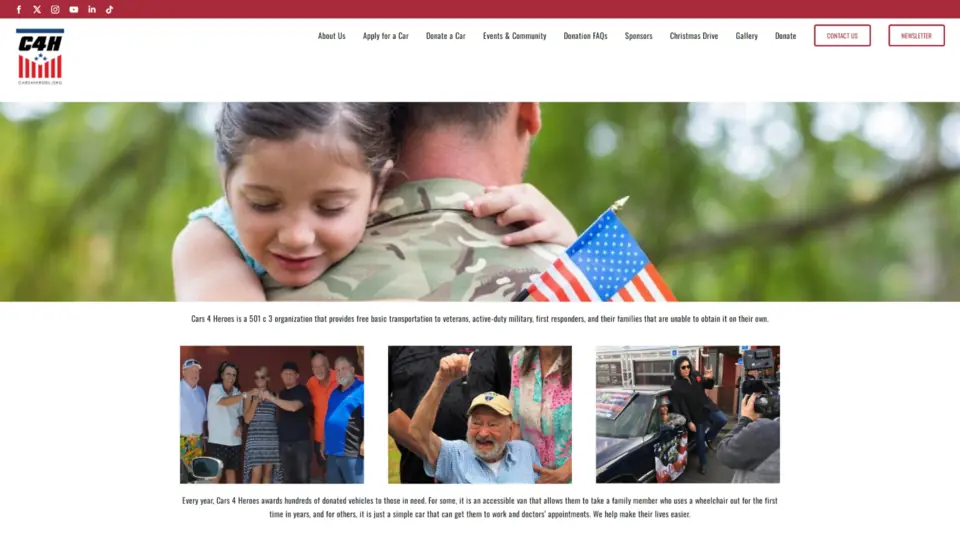
Since 1996, Cars 4 Heroes, a 501(c)(3) organization, has accepted car donations from the general public. They aim to provide cars to the people who need them, which are named below.
Who They Primarily Help
The organization awards vehicles to U.S. military veterans, active-duty military, first responders, and their families. These people usually aren’t able to obtain a car when they turn to the organization. What’s more, they find it difficult to access jobs due to them living outside of the range of public transportation.
How It Works
There are two ways you can receive a vehicle through this organization: someone can nominate you, or you can nominate yourself. Either way, the person nominating you (or yourself) must fill out the form on the Cars 4 Heroes website.
If Cars 4 Heroes contacts you for an interview, the organization will need valuable information. For instance, veterans and active-duty military personnel will need to provide data pertaining to their rank and years of service, among others. You’ll also need to present proof of service, such as your military card.
Related: Uber Military Discount
6. Working Cars for Working Families
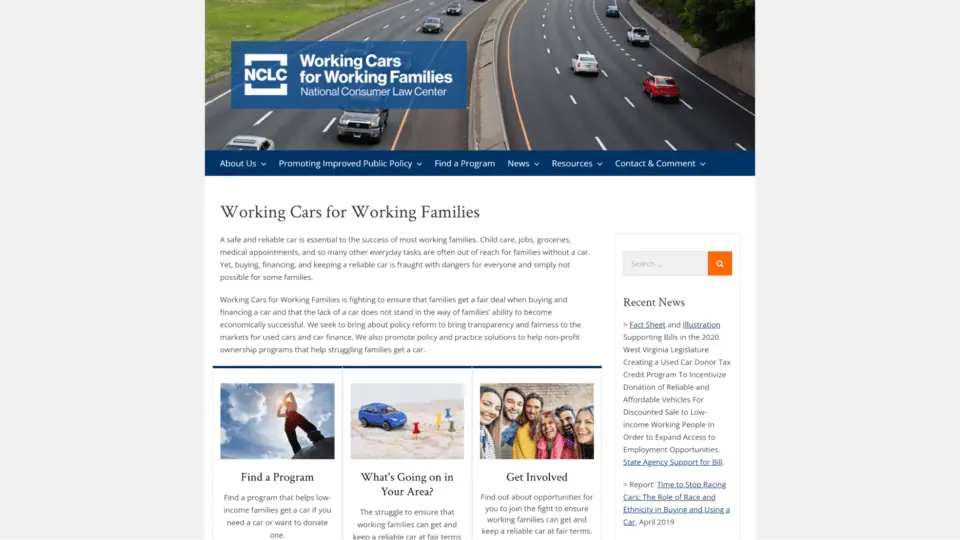
Working Cars for Working Families is an arm of the National Consumer Law Center. Their mission is to provide free cars to low-income families.
Who They Primarily Help
The nonprofit organization aims to ensure that struggling families have access to reliable transportation and the associated economic benefits.
How It Works
Through partnerships with over 120 nonprofit organizations, they have programs across the country to meet their objectives. You can visit their website to find programs in your state that offer free cars to eligible families like yours.
The criteria you’ll need to meet to qualify for one of their free cars is program-specific. Working Cars for Working Families recommends you reach out to respective program organizers to learn about the eligibility requirements and the application process.
7. OnlineCarDonation.com
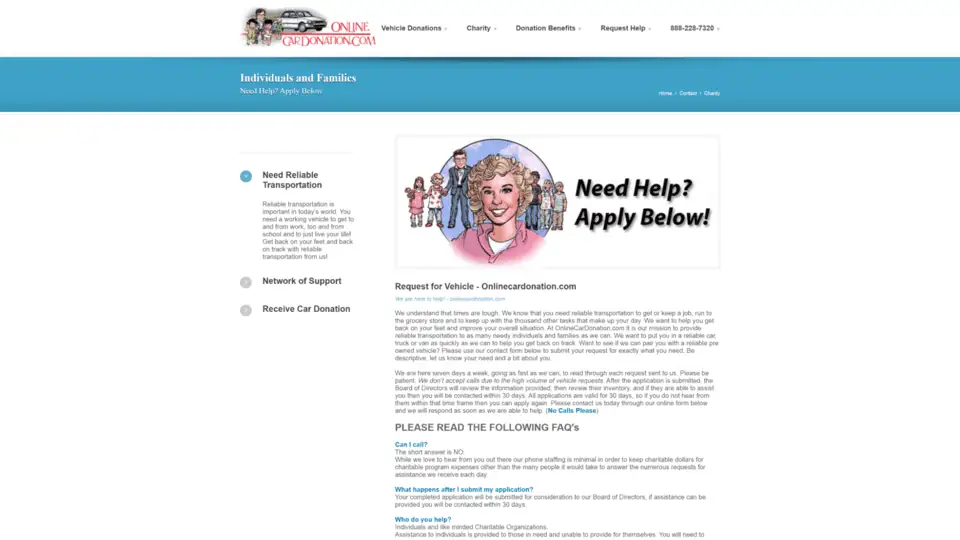
OnlineCarDonation.com is another website that offers free cars. The site gets these vehicles from U.S. citizens who’ve donated their vehicles to charity.
Its mission is to support the With Causes Charitable Network in its battle to combat homelessness, hunger, illiteracy, and other societal ills.
Who They Primarily Help
The site donates vehicles to needy individuals and families who need reliable transportation to get back on their feet.
How It Works
OnlineCarDonation.com receives thousands of donation requests each month, which their Board of Directors reviews. If your application is successful, the Board will contact you within 30 days. Interestingly, not hearing from the Board within this time doesn’t preclude you from applying again.
To apply, fill out the form on the OnlineCarDonation.com website. The site also recommends that you be thorough when sharing your story. As stated on the site, your story “may be used in several ways to gather the assistance you are requesting.”
Please note that this organization also provides vans and trucks, which is excellent if you plan to get into truck sharing. If you have a physical disability, it can provide customized vehicles (for example, a van with a wheelchair ramp).
8. National Auto Body Council
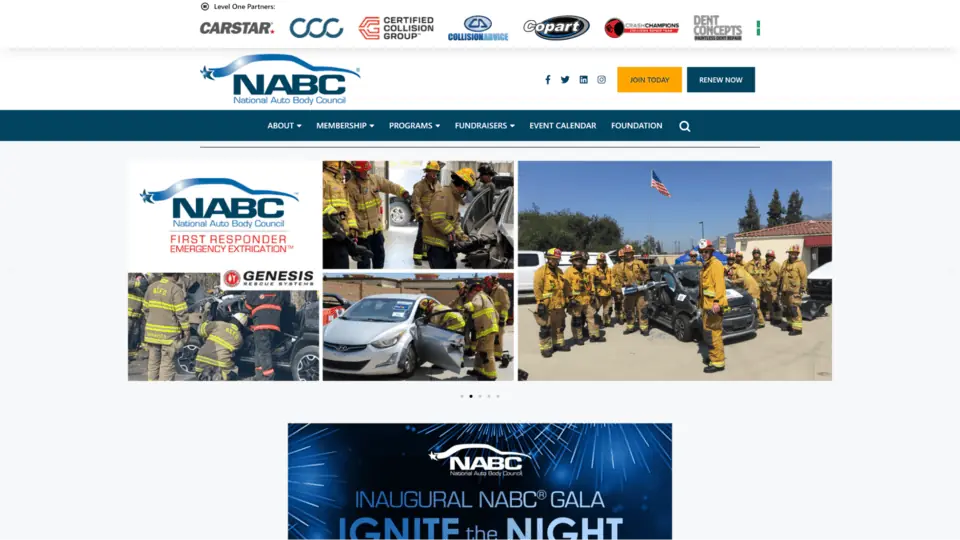
Since 2007, the National Auto Body Council (NABC) has awarded free cars to people in need. The organization hit a milestone in 2022 when it donated its 3000th vehicle. Its Recycled Rides initiative aims to provide free vehicles to put its beneficiaries on the road to stability.
Who They Primarily Help
Through partnerships with collision industry personnel, their free car program aims to help low-income individuals and service organizations in need of them. If your situation fits that bill, it’ll increase your chances of getting one of their refurbished free cars.
How It Works
If you want to receive a car donation from Recycled Rides, you’ll need an NABC member to propose you as a recipient.
NABC members can download the application form on this page. The completed application will then be emailed to the program manager, Dale Ross, at dross@nationalautobodycouncil.org. If you pass, the NABC will later transport the free car through 1-800 Charity Cars, the charitable organization that’ll identify you as a recipient.
9. Your Local Church
Like any nonprofit organization, your local church has a budget for assisting individuals in need. These finances have been and continue to be deployed to help congregation members during trying times.
Who They Primarily Help
Churches assist less fortunate church members, such as single parents, low-income families, and so on.
How It Works
Churches also receive donations from attendees in the form of used personal effects, like clothing and other household items. It’s not unheard of for some members to donate vehicles, which the church either uses or passes along to other churchgoers.
If you’re an active member of your church’s community, you may be able to get a free car in one of two ways: Either your church gives you a donated car, or your fellow members contribute to help you procure a free vehicle.
At the least, your fellow believers will need to see that you have no option other than to rely on the church for donated cars.
How to Get a Free Car Through Personal Connections
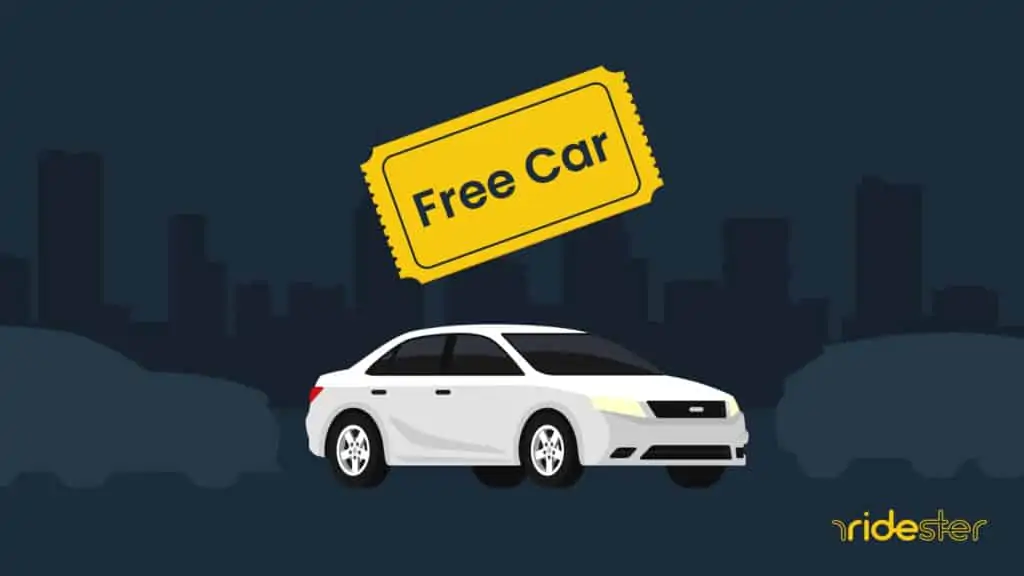
10. Family and Friends
If you don’t have any luck with businesses or charitable organizations, try looking closer to home. You can ask your immediate or extended family members or friends to see if anyone has a free car they’re willing to relinquish.
How It Works
Your path to car ownership may be shorter when sourced from family members. These people likely know about your situation and why you need a car. As such, a distant uncle, for example, might have no qualms about gifting you a free vehicle that’s gathering dust in his garage.
Sourcing a free car from friends may be slightly more challenging. Some friends may be in a similar financial situation as yours and may not have a free car to spare. However, it’s worth asking them anyway because of their networks. If a friend knows a guy who knows a guy with a car they want to get rid of, you could get a free vehicle.
11. Your Company
Getting a reliable car without having to pay for it upfront could be as straightforward as switching jobs. Some job roles include a company car as part of the benefits package, while other industries provide the car to assist you with doing your job. Common industries where this perk comes with the job include cable work, delivery driving, and social work.
How It Works
Depending on your new employer’s way of doing things, you could get a free car or one you gradually pay for out of your salary.
Admittedly, this method doesn’t get you a free car that you personally own. The car may belong to the company indefinitely or until you’ve paid off the car loan. In the former case, you may be subject to your employer’s rules related to vehicle use. For example, your employer may not allow you to drive the car outside of your state without first obtaining permission.
12. Your Local Car Dealership
It might also be possible to obtain a free used car from a car dealership near you. Some owners of local dealerships are kind enough to provide car donations to the general public.
How It Works
A common reason for the willingness to part with free charity cars is to fulfill their corporate social responsibility (CSR) obligations. In some cases, the local dealership may donate cars for tax reasons. Or the donated vehicle may be an old model that didn’t sell.
Therefore, if you contact the manager of a local dealership, you might be lucky and receive a donated vehicle. In your letter or email, you can explain your circumstances. Consider expressing your willingness to share your story with the public (in case the manager’s CSR obligations are what moves them).
One last tip: Timing is key when using this free car method. Consider pursuing it close to or during the holiday season (when it makes sense for businesses to be charitable).
13. GoFundMe
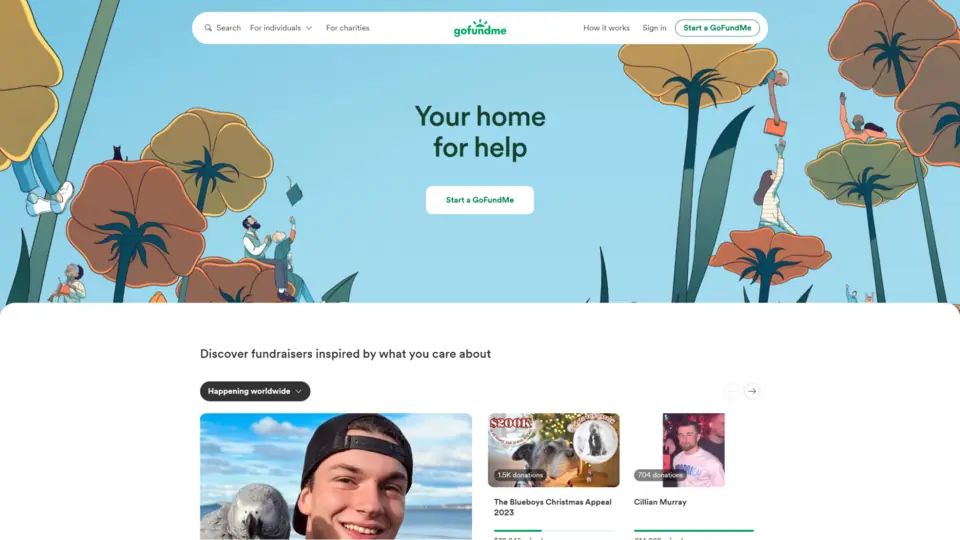
GoFundMe can be a viable option for obtaining a free car, provided you’ve fallen on hard times. Everyday people like you have used this popular crowd-sourcing platform to obtain donations from virtual strangers. Typical GoFundMe campaigns have raised thousands of dollars for life-saving operations, home rebuilding projects, and more.
How It Works
To make this option work, you’ll need to give your potential backers a compelling reason to support your cause. That entails sharing why you need public assistance to purchase a car and how the charity car will help you turn things around.
It pays to be honest on platforms like GoFundMe because people are surprisingly inclined to help what they deem a good cause. In contrast, embellishing the truth may get you in trouble with discerning backers who can see through fraudulent campaigns.
Frequently Asked Questions
Which Is the Quickest Way to Get a Free Car?
The quickest way to get a free car is to apply to a charitable organization that provides them. Many charitable organizations get regular car donations and have short wait times. In some cases, you could be chosen to receive a donated vehicle in as little as 30 days.
What Motivates Someone to Donate a Free Car?
Aside from helping others in need, car donors may also receive tax deductions. The IRS bases the deductions on the fair market value of these people’s donated cars. For example, a car worth $15,000 at the time it was donated provides $15,000 in deductions to the donor.
Do the Car Donors Keep Ownership Once They Donate the Vehicle?
No. They transfer the title for the vehicle to the charitable organization. In many cases, an organization arranges the transfer to make the donation as hassle-free as possible.
Once the transfer comes into effect, the charity becomes the legal owner of the car it donates to you.
Brett’s Take: Thoughts From an Expert
Before you go searching for a free car, consider the expenses that you’ll need to take on before you acquire one. These include taxes, insurance, maintenance, and gas, just to name a few.
I’d suggest first trying to borrow a car if that is an option. Doing so will save you these expensive costs, but this isn’t necessarily a good long-term option.
If you have a friend or family member that lets you borrow a vehicle, be courteous and don’t take too much. Be aware that they probably offered with the expectation that you won’t keep it forever.
If you need a car to keep as your own, I’d suggest trying to barter with somebody for one. I have a lot of friends who own businesses, and usually have a car or two laying around that rarely gets used.
Offering to do some free work in exchange for a vehicle is oftentimes a great way to get a car in return. While you’re not technically getting it for free, you are offering some sort of value in return.
If this isn’t an option, try seeking out a vehicle using the methods listed below. But remember, it’s crucial to be proactive, honest, and clear about your needs and situation.
Wrapping Up
As the article shows, there are several ways to get a car free of charge. People donate their cars to charitable organizations every day. If you meet these organization’s criteria, you and your family could have a vehicle without taking a loan.
Outside of charities, you might want to consider upgrading your job to one that provides a vehicle as part of the package. You could also turn to your local church or car dealership or ask family and friends.


